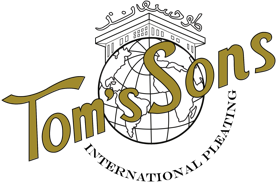How to Prevent Order Delays
Occasionally problems can arise that make your order either problematic or impossible to pleat. Below is a list of such variables that can delay your order or add ADDITIONAL COSTS. We recommend checking your fabric before purchasing or sending it to us. You will be contacted before we begin work on your order to discuss any potential problems and the particulars of your order.
- Hemmed incorrectly – Incorrectly hemmed fabric can create damages in the pleating or render your fabric useless. Read The Biggest Problem When Hemming Your Pleats for more information on this.
- Pre-cut Fabrics/Panels – All cutting must be discussed with us before being done. Incorrect cutwork may limit your length, cause damage if grain is incorrect, or may need to be recut in house. This can lead to additional time and charges for your order. Please review the Pattern Pleating Checklist for our complete guide on preparing cutwork.
- Fabric excessively wrinkled – Fabric should arrive either properly rolled or neatly folded. Softer fabrics can sometimes relax, but stiffer fabrics will need to be pressed flat before pleating. This means more steps are necessary to complete your order. This will add time to your initial turnaround estimate and additional labor charges. If rolling your fabric, make sure the roll is in tact as any breaks in the roll can create wrinkles in your fabric.
- Warped grain of fabric – Depending on the severity, this problem can have a significant impact on the quality of your pleating. If we notice this, we will contact you to discuss changing the pleat direction. If the warping is too severe, we may recommend changing your fabric. For sunburst pleating, a poor grain will cause your pleats to twist. Tight selvedges can lead to similar problems as well as create additional labor when preparing your fabric. When laid flat on the table, is the fabric really the shape of a rectangle, or is it more like a trapezoid, or a parallelogram?
- Tulle fabric not rolled properly – The majority of tulle fabrics available on the market are inexpensive and often handled/packaged poorly. We may refuse to accept tulle on a bolt or 108” tulle on the fold as the excessive creases create too much damage. Tulle must be 60” or less and properly rolled. Tulle prepared improperly must be rerolled and pressed, adding time and labor charges to your order.
- Specialty fabrics and leather skins– Some coated leathers and fabric, vinyl, flocked fabrics, and sequined fabrics may create problems for both your fabric and our pleating molds. We will test your fabric first to make sure no problems will occur. Some specialty fabrics require additional labor charges to ensure the best product. With flocked and sequined fabrics, these may be applied crooked or unevenly at the selvedge. This may result in additional time and labor charges to ensure proper alignment and grain.
- Hand painted, dyed, or digitally printed fabric – If your fabric is not properly “fixed,” the colors will run and ruin our pleating molds. Therefore, we recommend either machine pleating, or certain sizes of pleating molds that are expressly reserved for these situations. Digitally printed fabrics are usually not printed on grain and this can lead to additional time and labor charges to ensure proper alignment and grain.
- Non-continuous fabric - When we quote the yardage required for your project, it is based on a single continuous run of fabric. If you don’t have a continuous run of fabric you must inform us prior to sending in your order. If you send it to us with no prior notification, we will stop working on your order and contact you to make the necessary changes. This will delay your completion date and incur additional costs. For orders requiring 10+ yards of fabric, please send your fabric neatly rolled on an intact roll. Any breaks in the roll may create wrinkles in your fabric.
- Close out or Sale fabrics – We all love a deal (especially on fabric), but if you don’t understand how to evaluate the quality of fabric I would avoid purchasing large quantities of close out fabrics until you have have the opportunity to test it out. If the price is nominal, then go for it, but be forewarned: If it’s for an important garment, or a project that will have a lot of labor, your end product may not look so good. We have noticed in some cases cheap fabric is cheap for a reason, and often the reason is severely warped grain lines that can create SSSSOOOOOO many problems during the production process, that the extra expenses are often huge compared to the amount saved.
